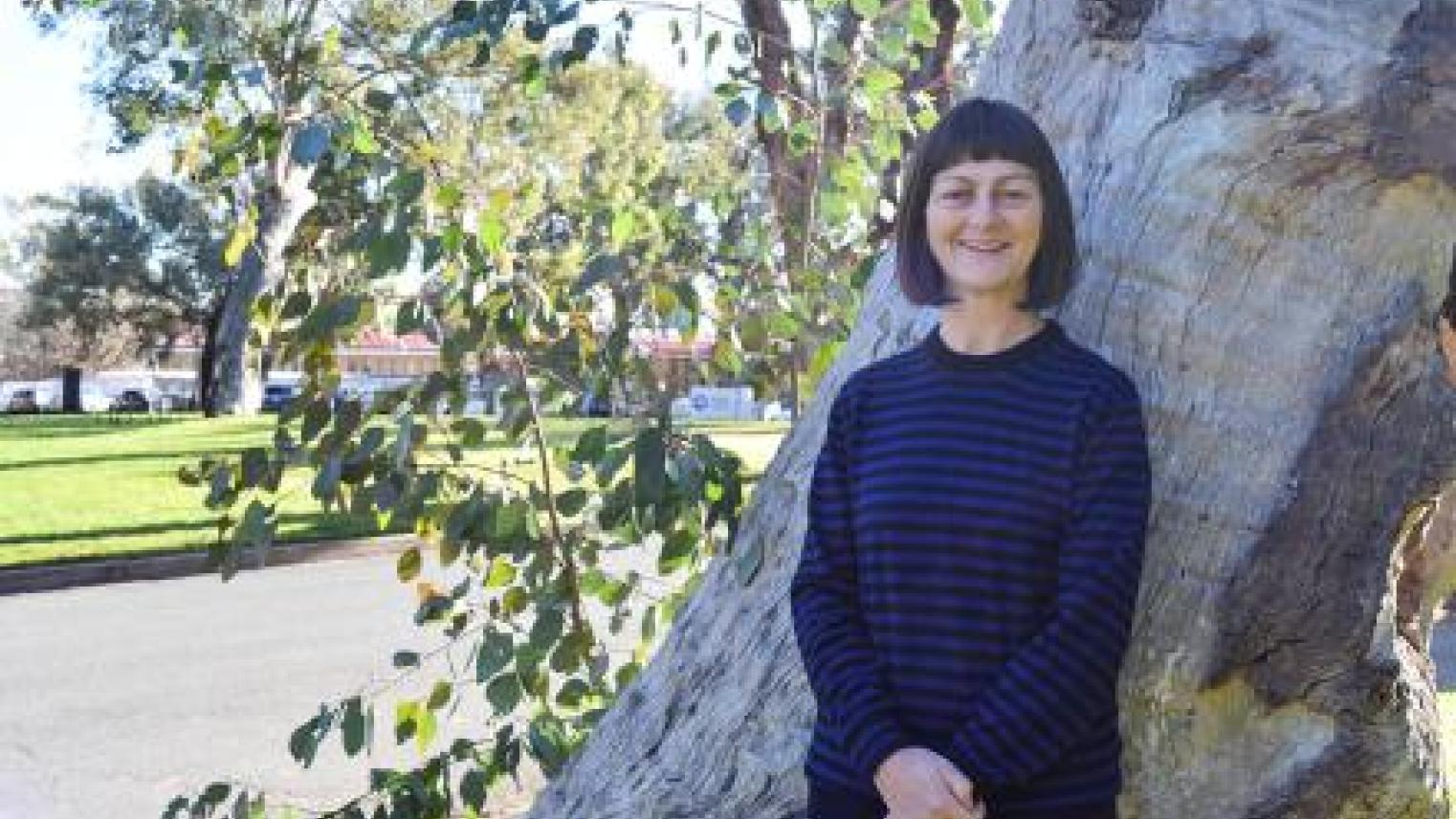ARC Laureate Fellow to advance the understanding of how to redress global health inequity

Professor Sharon Friel from the School of Regulation and Global Governance (RegNet) has been awarded an Australian Laureate Fellowship from the Australian Research Council (ARC) and is one of three academics from ANU who secured the prestigious award this year.
In reflecting on being the first and only person in her family to go to university (until her niece started in 2017), Sharon says that winning the Laureate feels “lovely, a little surreal and an important responsibility.”
“I would like to think that my award of the Laureate shows others from a variety of backgrounds what is possible, remembering the importance of structural and social support that sits behind this success.”
The fellowship project will use the lens of planetary health equity, defined as the environmentally sustainable and equitable enjoyment of good health, to advance our understanding of the interactions between climate change and health inequity, and create a new field of governance for planetary health equity.
Commenting on the complex challenges facing the world today, Sharon says that COVID-19 has thrown into sharp relief the deep and entrenched social and health inequities that we experience in Australia and across the world.
“These inequities are only going to get worse under climate change unless there are marked improvements in the conditions in which people are born, grow, live, work and age.
“If transformative action to mitigate climate change is not taken soon, the risks to human health, health inequities, and indeed human survival will be immense. Most affected will be socially disadvantaged groups who are least able to adapt to the changing climate.
“The Laureate will improve our understanding of how to address the systemic drivers of both health inequities and climate change.”
Sharon, who is the Director of the Menzies Centre for Health Governance at RegNet and a Fellow of the Australian Academy of Social Sciences, emphasised the three main aims of the Laureate:
Big, bold and disruptive research – the Laureate will provide a road map for planetary health equity. The project will integrate health, social equity and climate change agendas, deepen our understanding of the economic and social norms that define our society, and identify how the power of different interests, ideas and institutions hinder or enable the development of coherent policy and business practices for planetary health equity.
Action focused – the Laureate focuses on understanding the conditions that enable systems change to happen, particularly in food and energy systems. It will provide evidence-informed strategies for socially-oriented actors, including government, international organisations and non-government organisations to advance system transformation for planetary health equity.
Nurturing minds for the future – the Laureate award enables a 5-year program which will equip ECRs and PhD students with the intellectual, practical and strategic skills in their career as well as building deep disciplinary expertise. It will create a cohort of future leaders and innovators in the new field of governance for planetary health equity, and more generally in interdisciplinary systems-based approaches to complex societal problems.
RegNet School Director Professor Kate Henne congratulated Sharon on her success.
“This is a wonderful outcome and a well-deserved recognition of the significant work Sharon and her team have done over the years. We are looking forward to the many contributions this project will make to advancing understandings on how to create systems change that will improve planetary health equity.”
The Laureate program will build upon Sharon and her team’s work that focuses on the social and commercial determinants of health equity. Their work has identified important structural drivers of health inequities: policy incoherence, the privileging of economic over social and health interests, and power asymmetries between socially- and market-oriented actors. The Laureate aims to understand and change these factors to better improve planetary health equity.
Looking back at her career, Sharon reflected on the outstanding mentors who guided her to become a global leader in the field of health equity.
“They gave me a platform, and opened doors for me to influential academics and policy makers. In doing this, I have been able to help create a step change in academic and policy approaches to health equity.”
However, creating a paradigm shift often means working at institutional and disciplinary edges and being outside her comfort zone. To operate in such a way, without being disadvantaged in career trajectory, can be challenging and requires support. Sharon aims to do what her mentors did for her: to create a nurturing, enabling and ‘opening of doors’ program for junior scholars, particularly female scholars.
“I will create a platform that gives junior female scholars the confidence to be disruptive and have a prominent voice.”
Learn more about the ARC Laureate winners and their projects via ANU Newsroom.